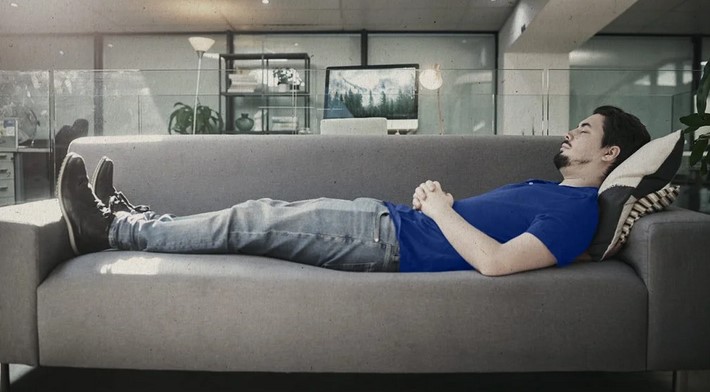Can Hypnotherapy Help with Anxiety? Here’s the Truth

Anxiety disorders are among the most common mental health challenges worldwide, affecting millions of people and impacting their quality of life. As individuals seek various ways to manage their symptoms, hypnotherapy has emerged as a potential alternative or complementary treatment option. But can hypnotherapy truly help with anxiety? Before we explore the evidence and mechanisms behind this intriguing approach, it is essential to understand how mind-body techniques—similar to stretching for recovery in physical health—can influence mental well-being. Just as stretching promotes muscle relaxation and recovery after exertion, certain therapeutic methods aim to relax the mind and reset cognitive patterns, which is the principle hypnotherapy harnesses in addressing anxiety.
Understanding Anxiety and Traditional Treatment Methods
Anxiety is characterized by excessive worry, nervousness, and fear that can disrupt daily functioning. It ranges from generalized anxiety disorder (GAD) to panic disorder, social anxiety, and phobias. Traditionally, treatment for anxiety involves psychotherapy, medication, or a combination of both. Cognitive-behavioral therapy (CBT) is the most widely recognized evidence-based approach, helping patients identify and modify maladaptive thought patterns. Medications such as selective serotonin reuptake inhibitors (SSRIs) and benzodiazepines may also be prescribed to alleviate symptoms.
However, not all patients respond well to these treatments, or they may experience side effects or relapses. Consequently, interest in alternative therapies has increased. Hypnotherapy, which involves guided relaxation and focused attention to alter subconscious thoughts, is one such approach gaining attention. But how does hypnotherapy actually work in the context of anxiety, and what does scientific evidence suggest?
Hypnotherapy Explained: Mechanism and Application in Anxiety Treatment
Hypnotherapy uses hypnosis—a trance-like state of heightened focus and suggestibility—to access the subconscious mind. During a hypnotherapy session, a trained therapist guides the patient into a relaxed state, allowing for the possibility of modifying negative thought patterns, reducing fear responses, and enhancing coping mechanisms. This process may enable the individual to confront anxiety triggers in a controlled and less distressing way.
Unlike common misconceptions, hypnosis is not about losing control or being “put under” in a way that compromises awareness. Instead, it resembles a deeply focused meditation or daydream where the person remains aware but is more open to therapeutic suggestions.
How Hypnotherapy Targets Anxiety
- Reframing Negative Thoughts: Hypnotherapy can help restructure persistent negative thoughts or catastrophic thinking that fuel anxiety.
- Stress Reduction: The deep relaxation involved reduces physiological symptoms like muscle tension, rapid heartbeat, and shallow breathing.
- Emotional Regulation: Hypnosis may improve emotional resilience by facilitating new associations with anxiety-provoking situations.
- Behavioral Change: Suggestions given during hypnosis can encourage healthier coping behaviors and diminish avoidance patterns.
Evidence and Clinical Studies
Multiple studies have examined hypnotherapy’s efficacy in reducing anxiety symptoms. Some clinical trials report significant decreases in anxiety scores after hypnotherapy sessions compared to control groups. For example, a 2019 meta-analysis found that hypnotherapy showed promise as an adjunct to conventional treatments, particularly in cases of generalized anxiety and situational anxieties such as preoperative anxiety.
However, it is important to note that research is still evolving, and hypnotherapy may not work equally for everyone. Factors such as individual suggestibility, therapist expertise, and the nature of the anxiety disorder influence outcomes. It is generally recommended as a complementary therapy rather than a standalone treatment, integrated with psychotherapy and lifestyle changes.
Integrating Hypnotherapy with Holistic Recovery Approaches
Addressing anxiety effectively often requires a holistic strategy that includes lifestyle modifications, mindfulness practices, and physical health maintenance. Just as athletes incorporate stretching for recovery to maintain muscle health and prevent injury, those managing anxiety can benefit from routine practices that support nervous system balance.
Complementary Techniques to Enhance Hypnotherapy Outcomes
- Mindfulness Meditation: Cultivates present-moment awareness and reduces rumination.
- Breathing Exercises: Activates the parasympathetic nervous system to counter stress responses.
- Physical Activity: Regular exercise, including yoga or gentle stretching, promotes endorphin release and overall relaxation.
- Sleep Hygiene: Ensures restorative sleep, which is crucial for emotional regulation.
Combining hypnotherapy with these approaches can optimize mental health outcomes by addressing both psychological and physiological contributors to anxiety
So, can hypnotherapy help with anxiety? The evidence suggests that hypnotherapy can be a valuable tool in the broader arsenal of anxiety management techniques. By fostering deep relaxation and enabling subconscious cognitive shifts, hypnotherapy may reduce anxiety symptoms and improve coping skills, especially when used alongside conventional treatments and holistic practices.
Just as stretching for recovery is an essential component in physical rehabilitation—helping muscles relax and regain function—hypnotherapy can serve as a mental “stretch” that eases the tension within the mind and rewires anxious thought patterns. However, it should not be viewed as a miracle cure but rather as a complementary method that requires professional guidance and patient commitment.
If you are considering hypnotherapy for anxiety, consult a licensed practitioner experienced in anxiety disorders, and consider integrating it with lifestyle changes that promote overall well-being. With the right combination of treatments, it is possible to find relief and regain control over anxiety.